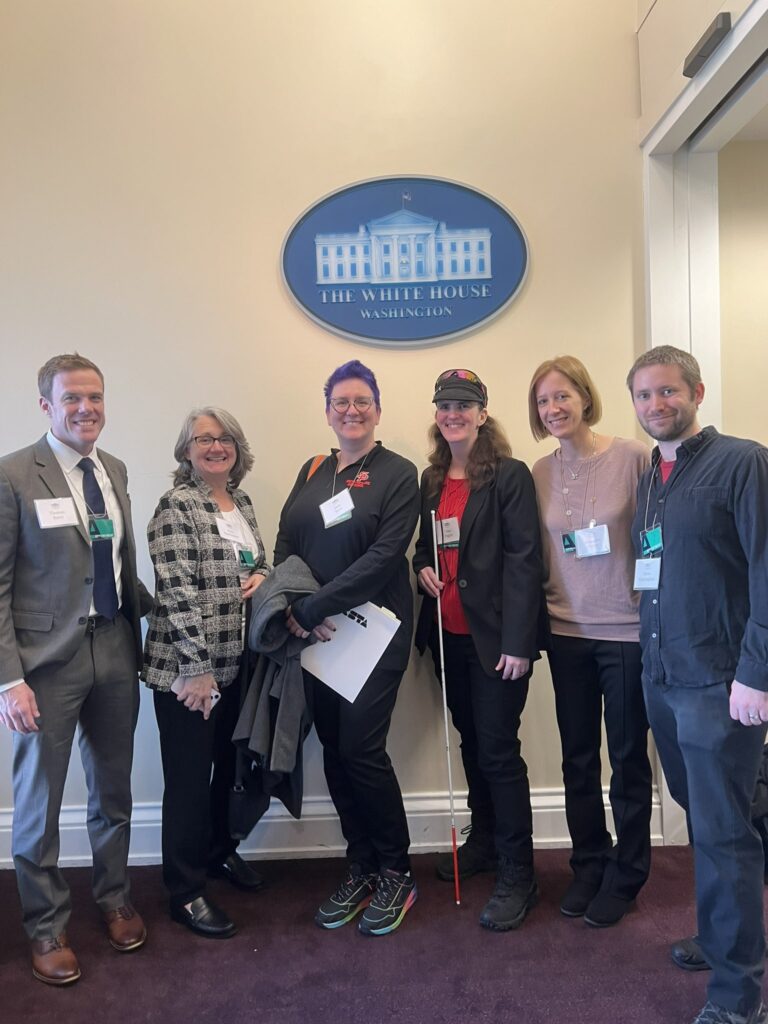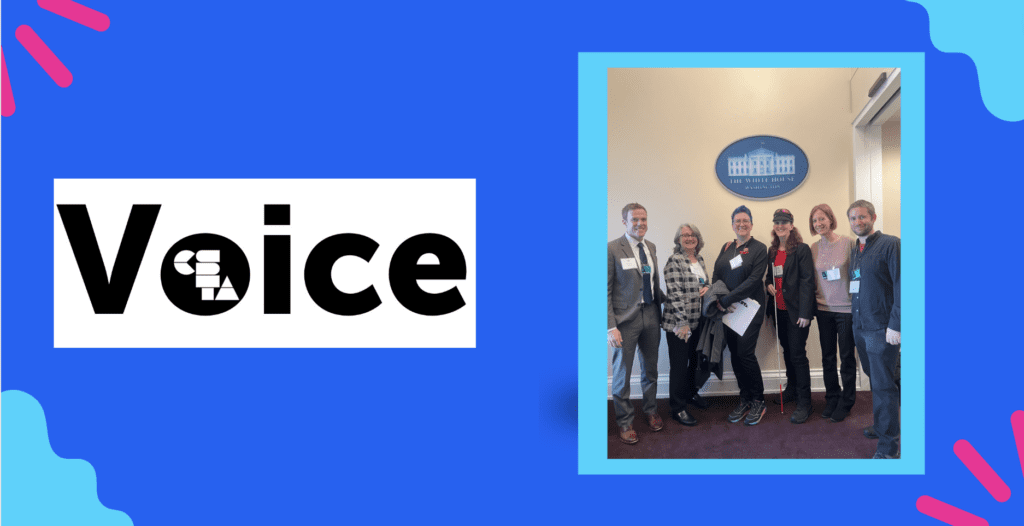Last week, amidst the buzz of Computer Science Education Week, I had the remarkable opportunity to be part of an event that was not just about discussing computer science (CS) but about shaping its future in the context of generative AI. The Biden-Harris Administration with the National Economic Council and National Science Foundation (NSF) welcomed about 60 teachers, advocates, officials, education leaders, and technology education leaders to discuss AI and Computer Science. There was an intentional focus on AI’s ethical, legal, and human-centered use. This White House gathering was a melting pot of ideas and passion, where each participant, though carrying a different flag for CS, unanimously agreed on one thing — the critical role of computer science education in an AI-driven future.
One statement that resonated deeply with me was from Margaret Martonosi, US National Science Foundation’s (NSF) Assistant Director for Computer and Information Science and Engineering (CISE), who asserted, “AI is deeply rooted in CS so to do AI without CS does not make sense.” This encapsulated the essence of our discussions — AI and CS are not at odds but are intrinsically linked. As a proud CSTA member, it was invigorating to be amidst educators and experts who understood the importance of keeping computer science teachers’ voices at the center of these conversations.

The event was a timely reminder that we no longer prepare students for a technology-driven future; we are in it. Our current tech-centric world, riddled with algorithmic bias, data privacy issues, and unregulated technological innovation, calls for an urgent need to equip our students with foundational computing skills. They must not only be creators but also critical evaluators of the technology that shapes their lives.
Benjamin Della Rocco, Senior Policy Advisor at the National Economic Council, provided thought-provoking comments on the potential and perils of AI in education. His attention to the AI Executive Order on Safe Secure and Trustworthy Artificial Intelligence focused attention on AI issues of safety, transparency, and civil rights. This is a welcomed step towards responsible AI utilization and implementation. Seeyew Mo’s (Assistant National Cyber Director (Workforce and Education), Office of the National Cyber Director) emphasis on an inclusive cyber workforce and Kei Koizumi’s (Principal Deputy Director for Policy, Office of Science and Technology Policy) discussion on government support for AI education reminded us of the broader ecosystem that supports our teaching efforts. These insights collectively highlight the critical need for ethical guidelines, inclusive strategies, and supportive policies in advance AI education, ensuring it is both accessible and beneficial for everyone.
The event was not just about high-level policy discussions. Karen Marrongelle from the National Science Foundation highlighted the importance of making AI and CS education accessible and equitable. This was a call for all educators to ensure that our teaching methodologies are inclusive and cater to a diverse student body.

The panel discussions were equally insightful. They covered a range of topics, from project-based learning to the importance of cross-curricular integration to the impact of AI and the need for early access for students. One key takeaway was the empowering effect of AI, especially for neurodivergent and uniquely abled students, underscoring the necessity of inclusion and accessibility to access education.
In conclusion, this event was a testament to the intertwined nature of AI and CS education. It was a reminder that our role as educators extends beyond the classroom. We are advocates for an education system that is equitable, inclusive, and prepares our students not just to be consumers of technology but to be its responsible creators and critics.
As I returned to my state, I carried with me a renewed sense of purpose and a commitment to foster these ideals in my teaching and advocacy efforts. Let’s continue these vital conversations and work towards a future where computer science education is inclusive, ethical, and empowers every student to shape the tech-driven world they inhabit.
Summary for K-12 Computer Science Teachers:
This event brought together teachers and leaders to discuss the integration of AI in education and its impact on students. The discussions highlighted the importance of preparing students for future careers in AI, ensuring diverse and inclusive education, and the role of government and educators in shaping AI policies and practices. As K-12 computer science teachers, let’s champion AI literacy initiatives within the context of computer science, advocate for the inclusion of teacher voices in policy discussions, and actively engage in promoting equity and inclusion in education across all content areas.
About the Author

Alexandra Holter is a Computer Science Coordinator, K-12, for Bloomington Public Schools in Bloomington Minnesota. She has been an educator for the past 14 years. Her career started in Tulsa Oklahoma where she obtained her BA and Masters of Science in Mathematics and Science Education. Then she first taught her first class of 7th grade science and has been committed to eliminating young people’s barriers to STEM ever since. In 2015 she completed her Ph.D.in Educational Leadership and Policy Studies from Oklahoma State University. In her current role she supports K-12 teachers and schools with building their individual and site level CS capacity so that CS really can be for all. She is a current member of the CSTA Policy Committee and serves on the CSTA Editorial Board.

